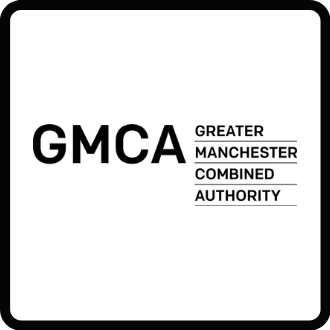 Greater Manchester Combined Authority (GMCA) is seeking expressions of interest from Greater Manchester public and third sector organisations to receive a commissioned training package of resources which will equip them with the knowledge and skills to deliver their services in a trauma responsive way. Organisations will be committing to embedding the GM Trauma Responsive Framework and joining a wider community of practice to share learning across the system.
Greater Manchester Combined Authority (GMCA) is seeking expressions of interest from Greater Manchester public and third sector organisations to receive a commissioned training package of resources which will equip them with the knowledge and skills to deliver their services in a trauma responsive way. Organisations will be committing to embedding the GM Trauma Responsive Framework and joining a wider community of practice to share learning across the system.
Organisations are asked to formally express their interest by 20 August 2021.
Background
GMCA want to change the way we do things across Greater Manchester and create a coordinated population approach to reduce children and families exposure to adverse experiences and trauma. GMCA want to support the understanding and recognition of ACEs and trauma to prevent or mitigate consequences and become a Trauma responsive city-region.
Trauma can impact every element of life and can affect a person’s ability to engage in society meaningfully, it can present as distressed or health harming behaviour and can ultimately affect relationships, engagement, employment and the ability to contribute to society in a positive and meaningful way, this is not inevitable and the way systems, staff and communities respond can have protective and positive effects.
Trauma Responsive Systems and Workforces
Trauma informed organisations, or systems that are trauma-informed, realise the widespread impact of trauma and understands potential paths for recovery. They recognise the signs and symptoms of trauma in clients, families, staff, and others involved with the system and responds by fully integrating knowledge about trauma into policies, procedures and practices. They seek to actively resist re-traumatisation.
GMCA’s vision for building trauma responsive communities and workforces is one where citizens have opportunities to develop intellectually, socially and emotionally and where services recognise and respond appropriately to the needs of our diverse communities.
GMCA want to enable every individual who interacts with an adult or child who may, or may not, have experienced trauma, has the knowledge, confidence and ability to build trusted secure relationships which avoid re-traumatisation and understand the importance of using strengths based approaches to empower individuals and communities to build resilience.
GMCA have developed a Greater Manchester trauma responsive training and support plan, which focuses on four levels of training Trauma Informed; Trauma Skilled; Trauma Enhanced and Trauma Specialist in line with Transforming Psychological Trauma – the Scottish workforce development framework. Content has been developed to reflect the needs of Greater Manchester and to move towards a trauma responsive region, thus it will not directly align to the Scotland framework.
All the content has a strong evidence base and much has been tested in Manchester and Salford, as either multi agency training or targeted work with Children’s Services and Youth Justice. The work from the Resilience Hub builds on the work they are doing across health and social care in relation to Covid as well as the complex safeguarding and bespoke work for Greater Manchester Police. To ensure that the training is as relevant as possible GMCA will consult on the content with residents with lived experience of Trauma and Adversity.
Four packages have been designed to reflect the differing priorities and needs across each of the 10 GM localities, which will ensure that resources can be targeted effectively and distributed equitably.
Packages are open to organisations within each individual Local Authority area to put forward an expression of interest, if successful, a nominated lead will be expected to facilitate attendance and be present at each session and encouraged to promote the training across agencies. Training will take place between September 2021 and March 2022 and will be delivered virtually.
Training packages are as follows
Package 1 – 700 places available
Trauma Aware and Trauma Skilled training aimed at all frontline workers with limited or no prior training/knowledge, delivered by Outside the Box led by Steve Brock (Social Work Consultant),
Additional Option 250 places available: Trauma Enhanced training for Practitioners working with Psychological Trauma aimed at frontline teams (& leaders) working with people with Multi Disadvantage and Organisations with ACE/Trauma training already embedded, delivered by Zoe Lodrick (Clinical Psychologist and trauma specialist),
Package 2 – 750 places available
Trauma Enhanced training for Practitioners working with Psychological Trauma aimed at frontline teams (and leaders) working with people with Multi Disadvantage and Organisations with ACE/Trauma training already embedded, delivered by Zoe Lodrick (Clinical Psychologist and trauma specialist), Level 3/4 Coaching Clinics/reflective practice support Inspirational Talk delivered by Smash Life (a lived experienced led charity working with young people).
Package 3 – 45 places available
Trauma Specialist Trauma Recovery Model Practitioner and Enhanced Case Management training package aimed at specialist practitioners working with people with complex trauma, delivered by the TRM Academy (an organisation led by Dr Tricia Skuse). Inspirational Talk delivered by Smash Life (a lived experienced led charity working with young people)
Package 4 – 200 places
Trauma Enhanced Leadership Managers training workshop aimed at those managing teams with lived experience and/or responsible for design and delivery of services for people with multi disadvantage, delivered by GM Resilience Hub (Team of Clinical Trauma Specialists). Inspirational Talk delivered by Smash Life (a lived experienced led charity working with young people)
For an informal discussion about this opportunity, email Jennifer Bagchi, Programme Manager, at: [email protected]